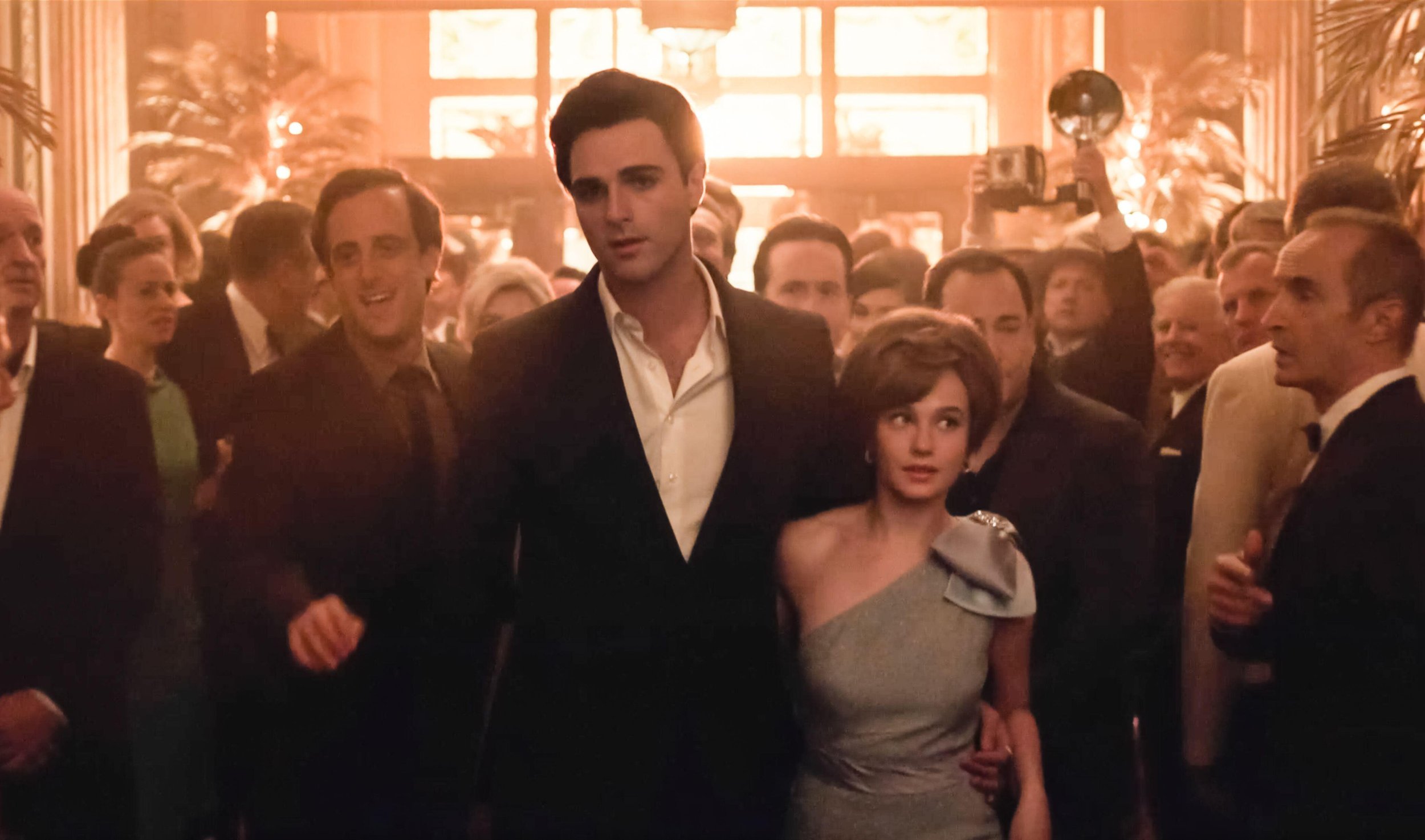ANATOMY OF A FALL
Directing: A
Acting: A
Writing: A
Cinematography: A-
Editing: A
Anatomy of a Fall is a spectacular specimen of cinematic craftsmanship. At 151 minutes, it does seem at first to move at a somewhat labored pace, and between that and the fact that the dialogue is in three different languages, this film won’t work for everybody. I would argue that it works for anyone with an appreciation for cinema that is elevated to high art through writing, editing and performance rather than dazzling visuals.
Mind you, the visuals in Anatomy of a Fall should not be underestimated. There’s a tracking shot early in the film that had me thinking, Why the hell are we suddenly going through the house from the point of view of the dog? Much later, during the second half of the film that is dominated by a trial, seemingly out of the blue we hear a clear recording of a recent argument between the woman accused of murder and her dead husband—and, at first, all I could think was, How is this happening? Who the hell recorded this?
I learned quickly enough that no matter what questions arise in Anatomy of a Fall, I need only to put my trust in the filmmakers—co-writer Arthur Harari, and especially director and co-writer Justine Triet. The early scenes in this movie seem to skirt the edges of inconsequential, but later prove important. This isn’t a “whodunnit” so much as a “did she do it?”, but in any case all the details we see onscreen are important.
As the title refers to, everything hinges on the discovery of Samuel (Samuel Theis), husband and father, dead in the snow outside the family home in Grenoble, having evidently fallen from the third-floor, attic window of the house. The key players in this mystery are wife and mother Sandra (Sandra Hüller, incredible); 11-year-old son Daniel (Milo Machado Graner, excellent); and of course, Samuel himself. Although a fascinating element of the storytelling here is how little we actually see Samuel onscreen. Aside from two scenes in which we see his dead body, he has only two flashback scenes, only one of them with his own audio—a visualization of the aformentioned argument, which ultimately cuts back to the courtroom when the audio becomes violent but ambiguous. In the second, Daniel is recounting a conversation with him in the car, and we see him, but his lips match Daniel’s voice quoting him as he tells the story. Beyond these spare examples, Samuel exists only in the abstract, as we follow Sandra and Daniel as they face Sandra being put on trial for murder.
I feel compelled to mention the dog, Snoop, again. I don’t want to get too close to spoiler territory here, but Snoop ultimately becomes one more key player, a pivotal part of the final days of the trial, the details of which make that earlier tracking shot from the dog’s perspective make sense. I’ll tell you that Snoop is fine in the end, but there is still a scene in the film involving him that is arguably the most horrifying in the movie, and if you love dogs, watching it might prove tricky. Side note: I can’t speak to any such intentions on Triet’s part, but this sequence is also provocative in regards to the notion that, when push comes to shove, people are more important than animals.
Broadly speaking, the genius of Anatomy of a Fall is how it skirts any of the details that might give us concrete answers about Sandra’s guilt or innocence—we are left to struggle with the same questions as the prosecutor (Antoine Reinartz), or Sandra’s old lawyer friend brought in to defend her (Swann Arlaud), or the judges, or the jury, or indeed even Daniel. There’s a moment in the film when Daniel is told that sometimes, when there are two possibilities that seem equally plausible, but it can’t be both, you just have to make your own choice. Such is the case with Anatomy of a Fall, which answers all the right questions and the right times, but also has just the right amount of ambiguity, leaving just enough questions unanswered to keep you guessing.
If you have limited patience with subtitled foreign films, Anatomy of a Fall might be a workable compromise: because Sandra is German and Samuel is French, but neither has mastered the other’s language, they speak to each other at home in English, making that the spoken language roughly half the time—even though it’s technically a French film. Rarely do you see films in which so many characters so casually switch back and forth between languages, sometimes from sentence to sentence. Here, it also proves to be a pertinent plot point, a source of resentment between Sandra and Samuel, as is the decision to relocate the family from London to Samuel’s hometown in France.
What this brings us back to is how, in Anatomy of a Fall, every detail matters. Sandra Hüller’s performance in particular is stellar in its ambiguity, easily gaining empathy but with an undercurrent of doubt, obstinately stoked by the prosecuting attorny, and indeed the inconclusive evidence itself. When all this ambiguity is the result of such deliberate intention, the result is a masterful achievement.
There’s a lot more to discover beyond the margins.
Overall: A



